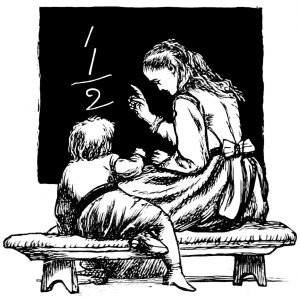 THE BIBLIOGRAPHICAL SOCIETY invites applications for awards from scholars engaged in bibliographical research (on, for example, book history, textual transmission, the making and use of manuscripts, publishing, printing, bookbinding, book-ownership and book-collecting). The awards are intended to initiate, encourage and disseminate innovative bibliographical research, including that undertaken by early career researchers. The Society hopes to make awards both for immediate research needs, such as for reproductions or travelling expenses, and for longer-term support, for example to assist with prolonged visits to libraries and archives.
THE BIBLIOGRAPHICAL SOCIETY invites applications for awards from scholars engaged in bibliographical research (on, for example, book history, textual transmission, the making and use of manuscripts, publishing, printing, bookbinding, book-ownership and book-collecting). The awards are intended to initiate, encourage and disseminate innovative bibliographical research, including that undertaken by early career researchers. The Society hopes to make awards both for immediate research needs, such as for reproductions or travelling expenses, and for longer-term support, for example to assist with prolonged visits to libraries and archives.
The Society’s Grants and Fellowships scheme is designed to promote high-quality, publishable research by individuals and groups. However, there are a number of things that the Society does not fund:
- Applications in which literary, linguistic or broader historical topics dominate
- Enumerative bibliographical projects
- Subject and single-author bibliographies
- Publishing costs, including those associated with digital imaging, reprographic permissions, indexing, proof-reading or translation
- Replacement teaching (except for the Pantzer Fellowship)
- Conservation activities
- Cataloguing of libraries (including book collections held in archives and museums)
- Digitisation
- Support for the income of the applicant
- Purchase of hardware, software or books
- Individual attendance at conferences or organisational costs related to them
- General funding to support student living costs during postgraduate programmes
Applicants for all awards may be of any nationality and need not be members of the Society or members of an academic institution or in full-time employment. All other things being equal, the Society gives priority to work that will be published. If applicants have an academic affiliation, they should indicate clearly on their application why their institution cannot provide the financial support required. Successful applicants are expected to make their supported work public (by the presentation of a paper to the Bibliographical Society or some other learned society, at conferences or by publication in print or online).
Applications should include a description of the research to be undertaken, with an explanation of its importance and an indication, if appropriate, of how it will be published or otherwise made available in the public domain.
Applications must include a clear and detailed breakdown of how and where the money will be spent (e.g. airfares must be separated from accommodation; reproduction costs must be listed separately, etc.). The number of days for which accommodation is required must be stated clearly. The maximum allowed for daily accommodation is usually £80.00, except in extenuating circumstances, which must be indicated on the application. Please note that subsistence costs (meals etc.) are not supported.
Specific instructions for PhD student applicants: doctoral students are eligible to apply for Major or Minor Grants including the Pantzer Scholarship (but not the Pantzer Fellowship). Major awards and the Pantzer Scholarship are more likely to be awarded to PhD students late in their studies, or to those who embark on their PhD with considerable prior experience; applicants whose work on a PhD programme is still in its early stages should consider first applying for a minor award. Applicants should indicate clearly on their application form (a) that they are a PhD student, and (b) the start date and the expected completion date. One referee must be the PhD supervisor.
A fuller document giving guidelines for applications and application forms for each category of grant can be downloaded from the page for Application Procedure.